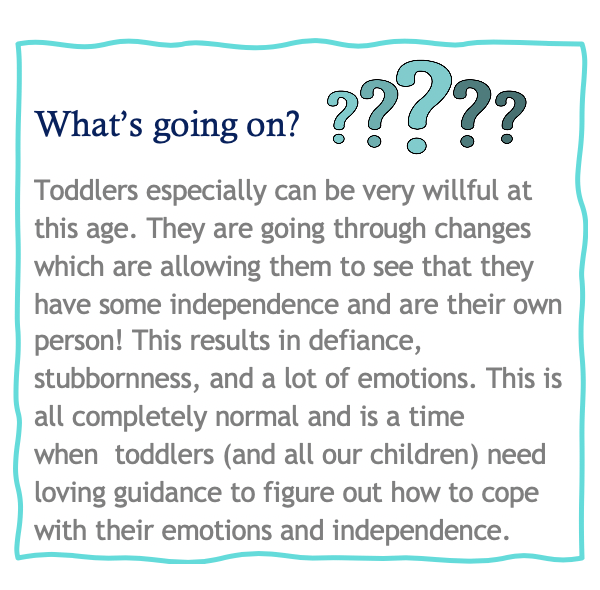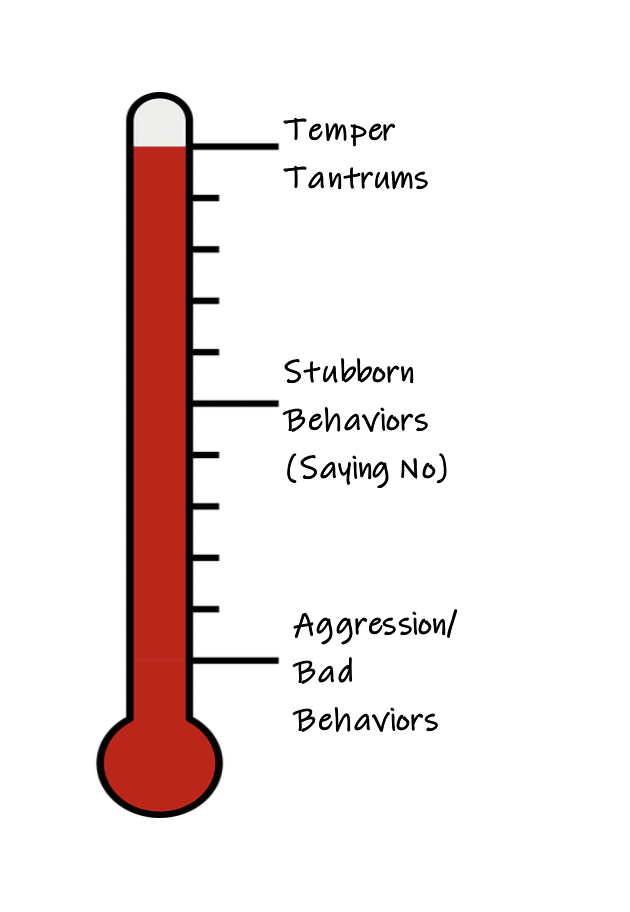Frustration is not only a normal feeling for toddlers to experience; it’s also an essential one in regard to their development of emotion regulation and resilience. Just like any other skills, your children will need to learn and practice them with your help. In this post, we will share examples of how to communicate with your children when they are frustrated.

When it gets heated…
Though our children are developing rapidly in their ability to feel different emotions and explore their independence, they still have a difficult time self-regulating. To balance this out, you have to make sure that you remain calm regardless of how you might actually feel (angry, anxious, or even embarrassed if your child acts out in public). It helps to remember that being a good parent doesn’t mean that your child is always happy, and to remind yourself that your child’s age-appropriate frustration will eventually pass.
Temper Tantrums:
1) Think about what might be connected to the tantrum (e.g., is your child hungry or tired?). Address those needs first.
2) Encourage your child to take deep breaths. You can even do this together.

3) Speak quietly and bend down to your child’s level. Relay logical consequences related to the undesired behavior, promise them, and follow through on using them. (e.g., “If you can’t wait for your turn on the swing, we’ll go over to the slides.”)
4) Redirect their attention, if possible. If distraction mid-meltdown isn’t helping, sometimes all you can do is wait it out. Comfort your child with a hug that will help change what her body is doing. Reflect on it later.
Stubborn Behaviors:
When toddlers and children say no, it stems from a need and desire for autonomy. Giving choices (~2 options) that are viable for both of you is one way to make your child feel like they still have some say. The less force you have to use, the more cooperation you get (E.g., “You can eat carrots or peaches with lunch. Which one do you prefer?”).
If you let your child choose whatever they want, you need to let them experience the consequence(s) of the choice. For young children, experience dictates their future choices. When they have to make a choice in the future, they’ll remember how they felt the previous time and whether or not they liked what they previously tried.
Another trick of the trade is making a game out of it. Encourage imitation, as children love to copy adults. For example, you can say, “My feet are cold, so I’m going to put on a warmer pair. Your feet must be cold too — why don’t we put on our socks together?”
Aggression:
Yelling and time outs don’t usually work at the toddler age, but “natural consequences”—like cutting playtime short to tidy up messes they’ve made or leaving the playground because they’re biting—will teach children responsibility for their behavior. If your child is older, validate their feelings and offer alternatives (E.g., “You are feeling angry because I said no television. Do you want to paint a picture instead?”. It’s important to teach our children how to express feelings in a healthy way.
For More information about the above:
In our future posts, we will talk a bit more about positive discipline where we will get to expand a little bit more about ideas we touched on this time. Please reach out If you ever need us, we are here for you!
Till Next Post,
Aleezeh Makani
Ethos Early Learning
Center Educator